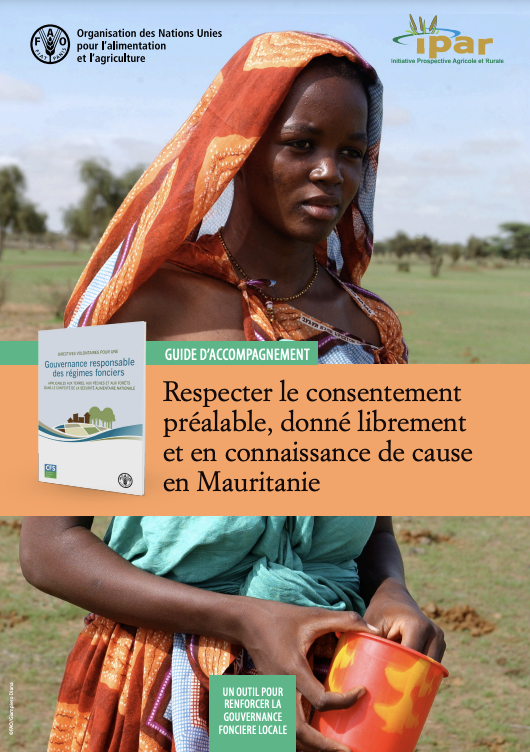Focal point
Location
The Food and Agriculture Organization of the United Nations leads international efforts to defeat hunger. Serving both developed and developing countries, FAO acts as a neutral forum where all nations meet as equals to negotiate agreements and debate policy. FAO is also a source of knowledge and information. We help developing countries and countries in transition modernize and improve agriculture, forestry and fisheries practices and ensure good nutrition for all. Since our founding in 1945, we have focused special attention on developing rural areas, home to 70 percent of the world's poor and hungry people.
Members:
Resources
Displaying 231 - 235 of 5074Добровольные руководящие принципы рационального использования почвенных ресурсов
Настоящие “Добровольные руководящие принципы рационального использования почвенных ресурсов” (ДРПРИПР) были выработаны в ходе подразумевающего широкое участие процесса в рамках Глобального почвенного партнерства (ГПП). Они должны стать справочным документом, содержащим общие технические и политические рекомендации в области рационального использования почвенных ресурсов (РИПР) для широкого круга приверженных своему делу заинтересованных сторон.
Руководство по управлению засоленными - почвами План имплементации Евразийского почвенного партнерства
Настоящее пособие подготовлено для проведения школы-семинара по
инновационным методам мелиорации и использования засоленных почв, которыйсостоится в Харькове, Украина, в сентябре 2017 года. Этот семинар проводится врамках выполнения Плана имплементации Евразийского почвенного партнерства,которое является субрегиональным партнерством в рамках Глобального почвенногопартнерства. Основными целями Глобального почвенного партнерства (ГПП)и Региональных почвенных партнерств (РПП) являются разработка глобальныхRendre la foresterie participative plus efficace en Afrique centrale dans le contexte de l’agenda 2030 : la feuille de route de Brazzaville
Le mode de gestion permettant aux communautés locales de disposer des droits suffisants sur les ressources forestières pour les gérer durablement, en toute autonomie, n’est pas encore assez répandu en Afrique centrale. Il était donc opportun de rechercher le meilleur moyen de permettre à un tel mode de gestion d’exprimer son plein potentiel.
Respecter le consentement préalable, donné librement et en connaissance de cause en Mauritanie
Ce guide est le produit d’une formation qui s’est tenue à Boghé en Mauritanie, du 24 au 25 avril 2018 sur le CPLCC et sur le partage des outils développés par des partenaires locaux pour améliorer la gouvernance foncière locale du pays. Environ 50 participants ont assisté à la formation, notamment des représentants du gouvernement et des autorités locales, des organisations de producteurs et des coopératives de femmes.
Совершенствование системы регулирования пастбищных земель
The Voluntary Guidelines on the Responsible Governance of Tenure of Land, Fisheries and Forests in the Context of National Food Security explicitly mention pastoralists as users of the Guidelines and as targets of capacity building. Despite the historical and often ongoing marginalization of pastoralists, this technical guide has been developed in response to emerging opportunities to support pastoralists and to strengthen their land and resource rights.











